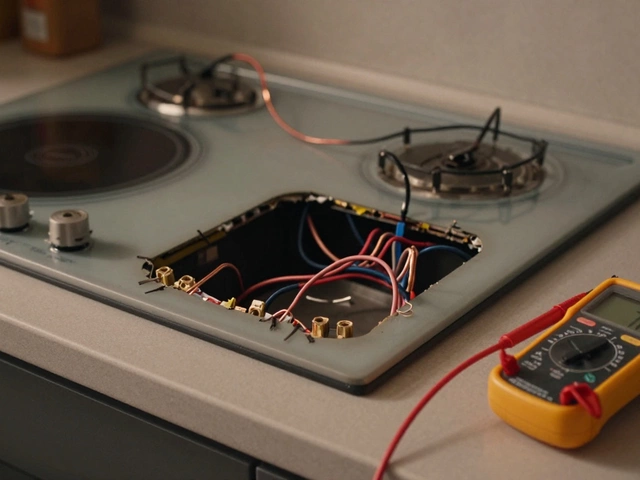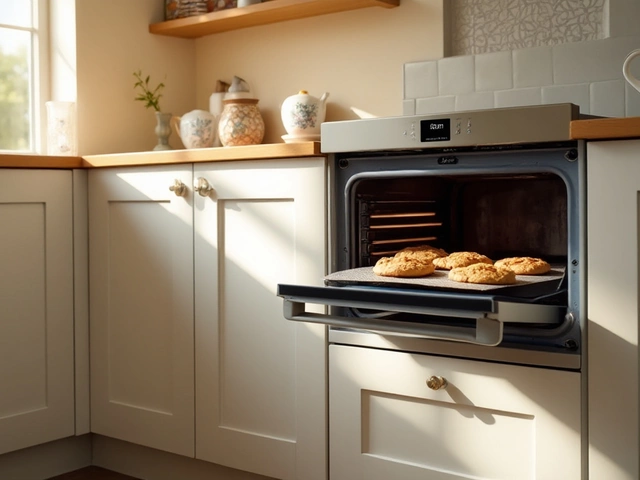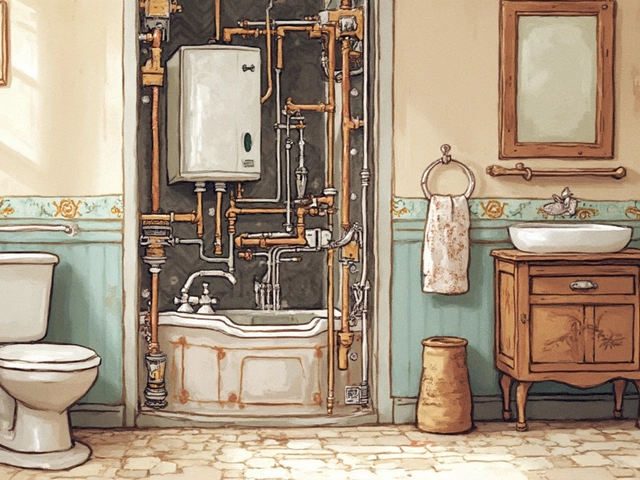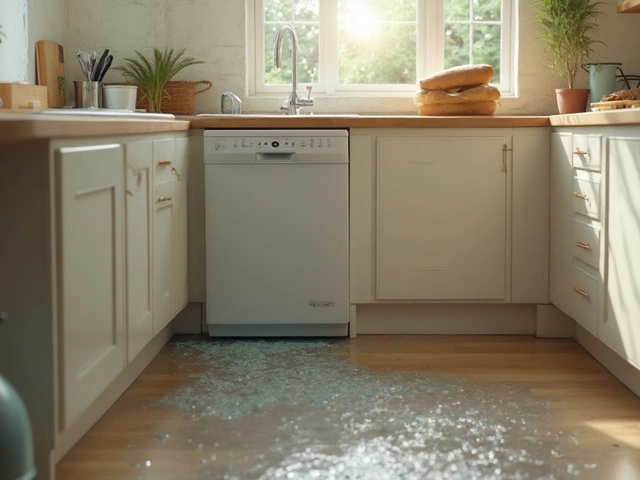Extractor fans pull stale air, odors, and moisture out of your home. When they start to sputter or make noise, it’s often a sign you’ve ignored basic maintenance. A quick clean or a simple part swap can bring the fan back to life and save you a call to a pro.
Most experts recommend giving your kitchen or bathroom fan a deep clean at least once a year. If you cook greasy meals or run long showers, aim for every six months. Turn off power, remove the cover, and vacuum out dust and grease with a brush. A damp rag wipes away the remaining grime—just avoid getting water inside the motor.
Skipping this step lets grime build up on the blades, lowering airflow and forcing the motor to work harder. Over time the motor can overheat, which is why you might hear a humming sound before the fan quits altogether.
Even with regular cleaning, fans have a lifespan. A well‑maintained kitchen fan usually lasts 8‑10 years; bathroom fans can reach 12‑15 years because they run less often. Look for these warning signs:
If you spot any of these, it’s time to replace the unit. Replacing a fan is a weekend DIY project for most homeowners. You’ll need a screwdriver, a new fan model that matches the existing duct size, and a voltage tester. Disconnect the wiring, remove the old fan, and mount the new one following the manufacturer’s instructions.
For those who aren’t comfortable working with electricity, a local electrician can finish the wiring safely—usually faster and cheaper than a full‑service call for a simple swap.
Keeping your fans in top shape also means checking the ductwork. Loose connections let moist air escape back into the room, which defeats the fan’s purpose. Tighten any clamps and seal gaps with foil‑tape if needed.
Finally, don’t forget the filter. Some fans have replaceable charcoal or mesh filters that trap odors and particles. Swap them out every 3‑6 months, especially in high‑use kitchens.
By cleaning, inspecting, and knowing when to replace, you keep your home ventilated, dry, and odor‑free—all without breaking the bank.

Not sure how to keep your extractor fan running smoothly? This guide breaks down the simple steps to service an extractor fan, covering cleaning, inspecting parts, and spotting potential issues. Regular maintenance can extend the life of your fan and ensure your kitchen stays fresh and ventilated. Discover some handy tips and tricks to make this an easy task. No need to call in a professional; you can handle this yourself with a little guidance.

Extractor fans play a crucial role in maintaining the air quality of your home, yet often go unnoticed until issues arise. Regular servicing of extractor fans can prevent malfunction, improve efficiency, and extend the lifespan of the device. This article explores the importance of servicing extractor fans, signs that show when a service might be needed, and provides maintenance tips to keep these devices in tip-top condition. Learn how a well-maintained extractor fan can contribute to a healthier living environment.

Extractor fans are crucial for maintaining fresh air and reducing humidity in various parts of a home. When these fans malfunction, it's important to know who to call for repairs. This article guides homeowners on how to find reliable extractor fan repair services. We'll look at why professional help is essential and what to consider when selecting a repair technician.

Extractor fans are essential for maintaining air quality in enclosed spaces like kitchens and bathrooms. When these fans break down, they can lead to moisture buildup and unpleasant odors. This guide offers practical advice on fixing a broken extractor fan, providing step-by-step instructions that any homeowner can follow. Learn how to diagnose common issues and the tools needed to restore your fan to working order.

A practical guide for diagnosing common refrigerator problems, spotting signs of faults, and fixing them at home with tips and real-world facts.

Replacing an electric hob isn't a DIY job. In the UK, it requires a qualified electrician for safety, legal compliance, and insurance reasons. Here's what you need to know before swapping your hob.

An electric oven is a staple in most kitchens, used for everything from baking cookies to roasting savory meals. Knowing how long an electric oven is expected to last can help homeowners budget and plan for replacement or repairs. This article explores the average lifespan of electric ovens, factors influencing their durability, and tips on maintenance to extend the life of the appliance. Understanding these aspects will aid in maximizing the utility and performance of your oven.

A failing water heater element can leave you in the chilly lurch just when you need a warm shower. Learn how to diagnose the problem with simple, straightforward steps. This guide covers common symptoms, testing methods, and practical tips for handling a faulty element. We'll explain what's involved and offer insights for DIY repair or knowing when to call a professional.

Dishwashers are a staple in modern kitchens, but they often face common issues. So, what's the most frequent problem users encounter? This article dives into typical faults like drainage issues and proposes practical solutions. Understand why your dishwasher might not clean effectively and learn simple DIY fixes to keep it in top shape. By addressing these issues, you'll ensure your dishwasher runs smoothly for years to come.